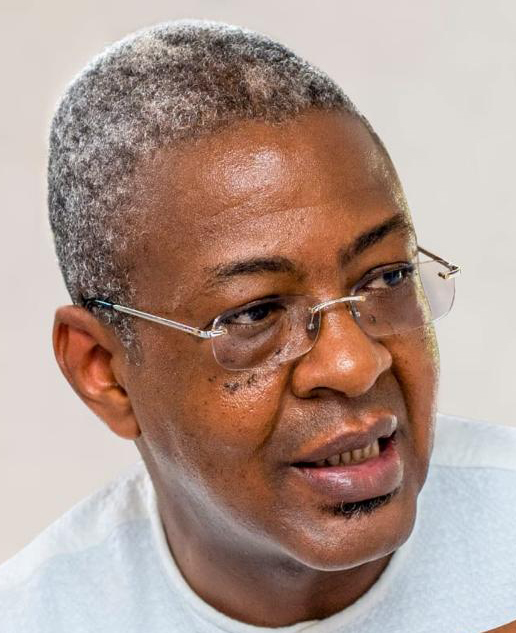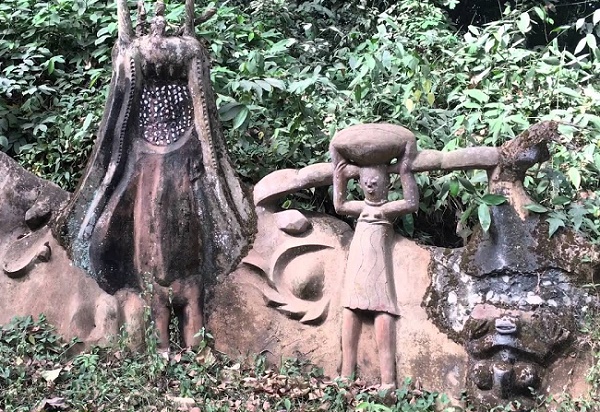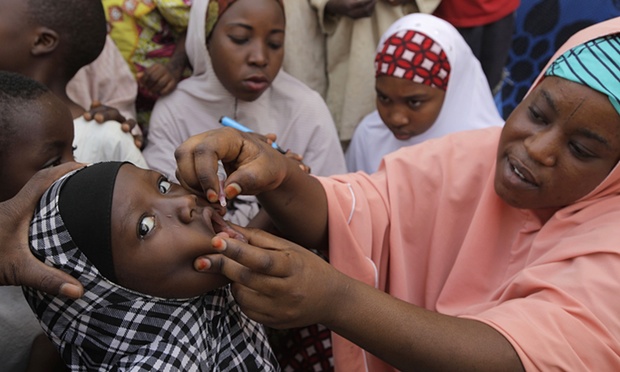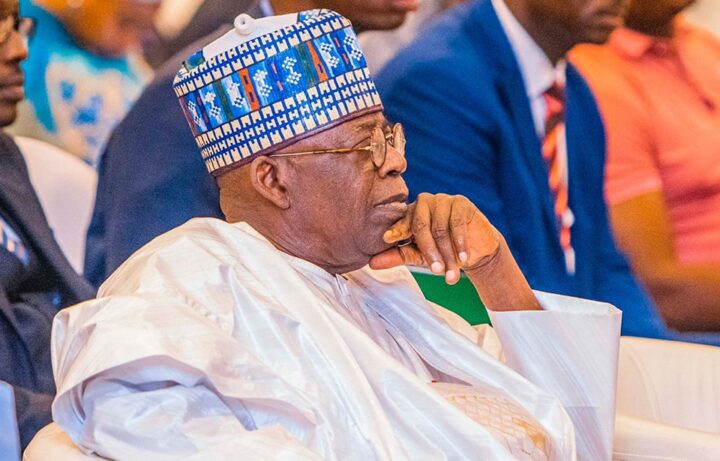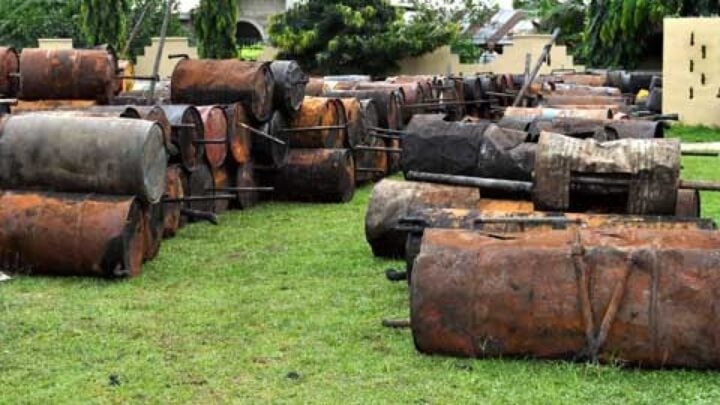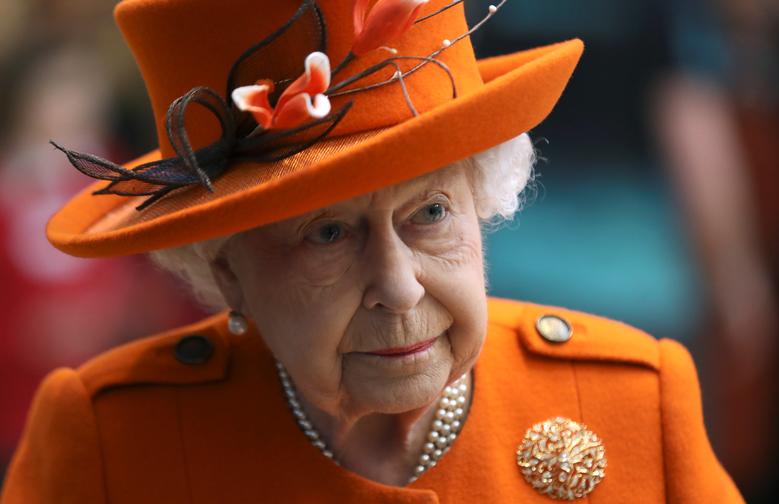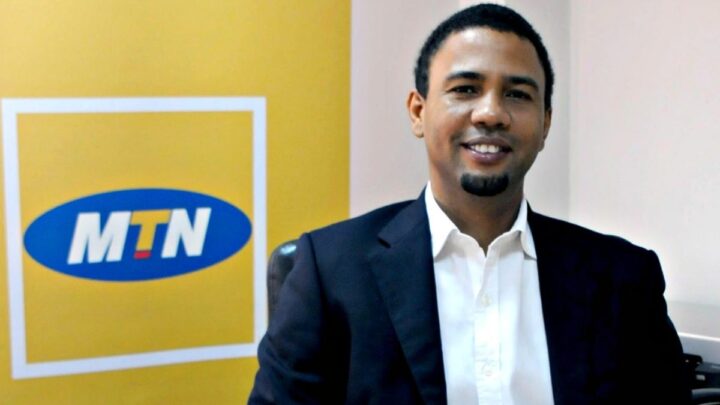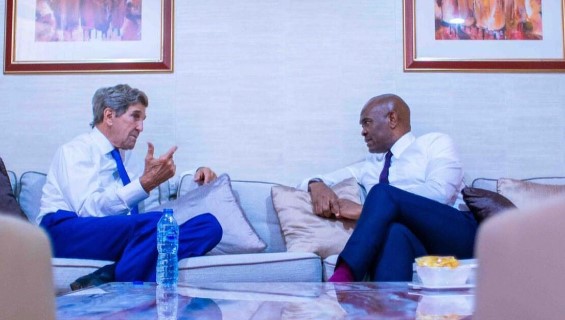Osun Osogbo shrine to get $127k US grant for digital documentation
The search for connection to the spiritual for attaining material success and well-being is possibly the most significant driver of tourism in Nigeria, from the earliest times. These journeys have been both domestic andinbound, with hordes of locals and waves of pilgrims from different parts of the world, believing in and seeking deep bonds with essences that serve their spiritual, and religious, needs across different locations in the country.
Religion and spirituality have inspired one of the fastest growing forms of tourism in the world which, on the home front, is as evident in the multitudes engaging in pilgrimages to the shrines of Osun Osogbo or BilikisuSungbo in Ijebu Ode, the long juju shrine in Arochukwu,the Api in Nsukka or even to the Guru Maharaji camp situated on the outskirts of Ibadan, among others. We equally have the massive followership of the two great Abrahamic faiths – Islam and Christianity – strewn across all towns and cities of Nigeria.
Economic data might not presently capture the peculiar details of the levels of activity involved in spiritual visits or journeys within and to Nigeria, as a sizeable dimension of the activities are within the ambits of the informal sector. Correlative data however shows how huge religious tourism is in the country. This can be gleaned from information around contributions to the national GDP of the hospitality, catering, travels and aviation, and related sectors.
From the dawn of creation, the human has essentially been a seeker, a journeying man or woman, who if not in search of physical sustenance to keep the body together, is on expeditions of finding meaning, or to understandthe natural world, and that which is beyond the physical, and his or her place in it all.
Advertisement
As communities dispersed due to different pressures, people took along with them many rites that had been formed around spirituality to their new locations, from where they also kept making return journeys to their original homes and points of spiritual departure for renewal and reconnection to the source.
Tourism is closely linked to African traditional religions and spirituality, and Nigeria is location of and host to hundreds of festivals that arose from spiritual experiences, which people undergo travels from far and wide to partake in the spectacles involved. A few of the prominent ones among these rites – beyond those initially cited – include those of the Mmanwu, Omabeand Odo masquerades in Enugu State, the Omo-Ukwu in Ohaofia, and the highly revered Odun Ifa in Epe.
As earlier alluded to, the prime example of the Osun Osogbo festival commemorates the Osun river goddess believed to hold the powers of wealth and fertility, and it finds great resonance with foreigners, locals and people from Nigeria’s various Diasporas, who are persistently drawn to its annual fairs. In addition, the Udju IwhurieFestival, also widely known as the Agbasa Juju Festival in Warri, is celebrated by the Agbarha people as tribute to Iwhurie, the god of war. And, the Iriji or New Yam festival is regularly held to appease the deities of harvest, after bountiful seasons in many parts of South-EastNigeria.
Advertisement
While there are equally other festivals arising from the worship of local deities like Sango, Ogun, and Obatala, etc. in South-West Nigeria that inspire domestic and inbound tourism, a number of other festivals have grown from religious roots to become great cultural enactments, such as the Argungu fishing festival, which has an Islamic ancestry and began as a way of ending hostilities between the Sokoto Caliphate and Kebbi Kingdom in 1934. There is also the Ojude Oba Festival in Ijebu Ode that was started as a way of paying homage to the Awujale, the paramount ruler of Ijebu land, on the third day after the Eid el-Kabir celebrations.
Religion and Journeys of Faith
People have engaged in journeys of faith from the earliest times, with numerous instances documented in the scriptural texts of Christianity and Islam from over two millennia back. In the Bible, some of the important religious journeys included the annual travels of Elkanahto Shiloh, as chronicled in the Book of Samuel, and the story of the travels of the Jews from all over the world to Jerusalem to observe the Passover, as recounted in the Act of the Apostles.
In Islamic lore, one of the most consequential journeys of the noble Prophet Muhammad (SWT) was the Hijra of 622 AD, from Mecca to Medina, signifying the human restoration from darkness to light; heathenism to true worship.
Advertisement
No doubt, while a very significant aspect of the religious tourism embarked upon by Christians and Muslims are externally oriented towards the homelands of these faith, whether in Mecca, Medina or Jerusalem, yet there have equally been a vital inbound aspect to these journeys. The country has become a magnet to many who travel from distant and near locations for faith-healing. This has been more evident, though, within the Christian faith.
Some statistics have pointed out that a huge percentage of travelers worldwide are interested in faith-based tourism. This is certainly true in Nigeria, with its very many religious communities, festivals, prayer camps, and affiliated industry, including trade and hospitality. For sure, faith-based tourism is big business in Nigeria.
Instances abound of the vast inbound pilgrimages to religious grounds such as the Redemption Camp of Redeemed Christian Church of God (RCCG) in Ogun State for its worship sessions and Holy Ghost Congresses. Also, for the retreats and similar programmes of the Deeper Life Christian Life Ministry, and the meetings of the Living Faith (Winners) Church in Sango Ota, with its signature annual Shiloh fests. There are also the synods of the Anglican Communion and All Anglican Clergy Conferences that altogether pull massive attendances from across and outside the country. More so, there are the immense religious music fiestas that witness large local and foreign turnout, such as the yearly festival of the House on the Rock church, known as The Experience.
A considerable religious economy has developed around these spiritual engagements and congregations – which ripple across their different locations. This is testified to in the activities of the Synagogue Church of All Nations (SCOAN) based in Ikotun, Lagos, with some estimates putting its services as cumulatively having up to 150,000 weekly attendees! This was largely during times before the passing of its charismatic founder, the late Pastor TB Joshua. A typical event of the church had a congregation made up of Nigerians and a substantial foreign following, comprising of distinguished personalities like Heads of State of African countries, among others.
Advertisement
There are also the highly attended programmes and conventions of different Christian denominations in the country, such as the many adoration ministries of the Catholic Church in Nigeria. A number of these are led by such renowned clerics like Reverend Father EjikeMbaka, Denis Attah (Agu Nwa Jesus), Basil Gbuzue, Paschal Tochukwu Edediegwu, Monsignor Emmanuel Edeh, etc. These are ministries that huge numbers of local and foreign faith travelers visit repeatedly, and quite often.
A major stretch of convergence for a sizeable segment of Nigerian religious/spiritual tourism is the Lagos–Ibadan Expressway corridor, which is occupied by more than twenty different religious prayer grounds, hence its designation as The Spiritual Highway. This is an expanse hosting the grounds of numerous denominations, such as the Redemption Camp of RCCG, the Prayer City of the Mount of Miracles and Fire Ministries (MFM), the Deeper Life International Conference Centre, the Foursquare Camp, etc. There is equally the very visible Nasfat Islamic Centre, making it a multi-religious and diverse corridor.
Advertisement
Other religious camps that attract tourist traffic, both domestically and internationally, include those of Islamic groups like the Ansarudeen, Nawarudeen, Tijanniya, Shafau-deen in Islam, and Bebe Islam, etc., which are all dedicated to the production, propagation and consumption of spirituality in Nigeria.
The Economics of Religious Tourism
Advertisement
The phenomenon of religious or spiritual tourism has evolved what has been described as a ‘sacred places economy’, in which faith-based journeys and their associated rites have become a crucial source of livelihoods and jobs for an expanding number of people, even beyond the religious places.
This form of tourism certainly brings the benefits of commerce to the travel and aviation, hospitality, catering, transportation, and telecommunications sectors. And, theproceeds from tourist spending have ripple and multiplier effects across the economy, from agriculture to transactions through financial institutions.
Advertisement
A foremost instance of how religious tourism is a vital force in the fortunes of nations is evident in the Kingdom of Saudi Arabia, which is location to one of the largest religious tourism activities in the world – the Hajj and Umrah pilgrimages. These see to the visit of between two to three million people yearly (besides 2020 when the COVID-19 restriction was fully in place), adding about $12 billion to the country’s GDP annually. This is about 20% of the Kingdom’s non-oil GDP and 7% of the yearly GDP. In 2017, over 900,000 new jobs were created as a result of tourism, which is also projected to earn about $15 billion this year.
Similarly, as it is location to some of the most sacred sites in Christianity, Judaism and even Islam, religious tourism in Israel is noted as having witnessed as many as five million tourist arrivals in 2019 (just before the advent of the coronavirus), and about $8.46 billion in earnings, which is over 2% of the national GDP.
With increased tourist inflows into and within Nigeria as motivated by religious tourism, this is set to expand economic activities, increase jobs, grow incomes and livelihoods, while also enhancing government revenues directly and indirectly through multiplier effects. More so, inflow of the much-needed foreign exchange will increase with the continuous appeal of Nigeria’s sacred destinations and spiritual attractions.
A perspective on the extent of the possibilities of religious tourism is evident in some estimates around an annual convention of the RCCG, which had over four million people cumulatively in attendance of a week-long event. This witnessed visitors from 35 countries, including 12 African and 23 non-African countries, whowere claimed to have expended about $1.5 million on accommodation, hospitality, memorabilia, etc.
If this is extrapolated over the number of such activities routinely being hosted by the numerous denominations and religious groups, even within traditional worship, it speaks to the huge economic potentials of Nigerian religious tourism. And, if these possibilities are enlarged through the anticipated development of certain religious heritage sites, which are bound to become hubs of interest, the immense prospects of religious tourism in the country will definitely be on the uptick.
It is interesting to note that five spots are being considered as World Islamic Heritage Sites in Nigeria, and these include Hubbaren Shehu, which is Sheikh Usman Danfodio’s house in Sokoto State (an outstanding example of Islamic traditional architecture). There is equally the Gobarau Minaret in Katsina (a unique structure of its kind), the Sheikh Alimi Mosque complex in Ilorin, the Mbormi Battle Ground in Gombe and Fanisau Palace Mosque in Kano. These are sites already proposed to the World Islamic Heritage Committee for official recognition. The great extents of interest these attractions will definitely induce and journeys they will inspire are certainly not too difficult to imagine.
With the increasing pull of religion as a major categoryof tourism in the country, it is vital for the gamut of tourism practitioners in the country to pay greater attention to this ascendant form and partner with religious bodies to produce remarkable products and packages around it. Great lessons in this regard can be learnt from countries that have made huge successes of their economies of sacred places. This will go a significant way in enhancing Nigerian tourism, while creating a durable economic mine out of it.
Coker, the Baba Eto of Yorubalandand Director General of the Nigerian Tourism Development Corporation, is the chief marketer of the Nigerian destination.
Views expressed by contributors are strictly personal and not of TheCable.
Add a comment
